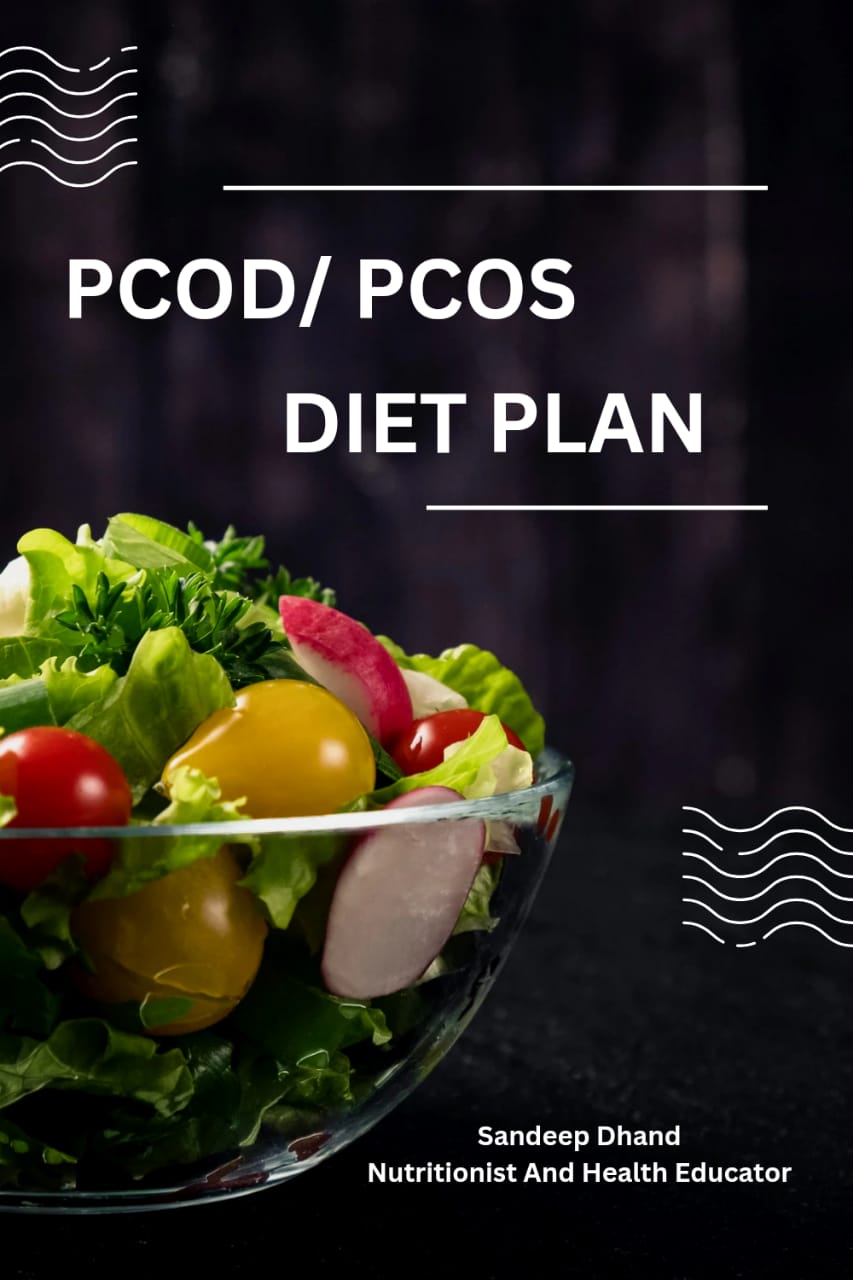Sandeep Dhand Ludhiana
Nutritionist And Health Educator
Polycystic Ovary Syndrome (PCOS) or Polycystic Ovary Disorder (PCOD) affects millions of women globally, disrupting hormonal balance, menstrual cycles, and overall health. While medication and lifestyle changes are commonly recommended, a targeted diet can significantly manage symptoms and promote healing. This article explores how food choices can help combat PCOD/PCOS effectively.

Understanding PCOD/PCOS
PCOD/PCOS is a hormonal disorder where ovaries produce excessive male hormones (androgens), causing issues such as irregular periods, acne, weight gain, and infertility. It is also closely linked to insulin resistance, a condition where the body struggles to utilize insulin properly. A balanced diet focusing on hormonal regulation and blood sugar control can greatly ease symptoms.
Key Principles of a PCOD/PCOS-Friendly Diet
- Focus on Low Glycemic Index (GI) Foods
Low-GI foods prevent blood sugar spikes, reducing insulin resistance. Examples include:
Whole grains (quinoa, oats, brown rice)
Legumes (chickpeas, lentils)
Non-starchy vegetables (broccoli, spinach, zucchini)
- Prioritize Anti-inflammatory Foods
Chronic inflammation worsens PCOS symptoms. Combat this with:
Omega-3-rich foods (salmon, walnuts, chia seeds)
Colorful fruits and vegetables (berries, kale, bell peppers)
Spices like turmeric and ginger
- Choose Lean Proteins
Protein helps stabilize blood sugar and keeps you full longer. Include:
Eggs
Skinless poultry
Tofu and paneer
- Avoid Processed Foods and Sugars
Highly processed foods and added sugars worsen insulin resistance and inflammation. Cut down on:
Sugary drinks and snacks
White bread and pastries
Packaged snacks with trans fats
Superfoods for Managing PCOD/PCOS
- Cinnamon
Known for its ability to regulate blood sugar, cinnamon can be added to smoothies, tea, or oatmeal for a flavor and health boost.
- Flaxseeds
Rich in lignans and omega-3 fatty acids, flaxseeds help balance hormones and reduce inflammation. Add ground flaxseeds to yogurt, salads, or smoothies.
- Spearmint Tea
Studies suggest that spearmint tea can reduce testosterone levels in women with PCOS, improving symptoms like excessive hair growth and acne.
- Avocado
High in healthy fats and fiber, avocado supports hormonal balance and provides satiety, reducing unhealthy cravings.
Sample Meal Plan for PCOD/PCOS
Breakfast
Spinach and avocado smoothie with almond milk
A handful of mixed nuts
Mid-Morning Snack
A bowl of mixed berries with a sprinkle of cinnamon
Lunch
Quinoa salad with grilled chicken, kale, and olive oil dressing
A side of roasted sweet potatoes
Afternoon Snack
Spearmint tea and a boiled egg
Dinner
Grilled salmon with steamed broccoli and a small serving of brown rice
Dessert
Dark chocolate (70% or more cocoa)
Lifestyle Tips Alongside Diet
While food plays a crucial role, combining dietary changes with other lifestyle modifications enhances results:
Exercise Regularly: Engage in activities like yoga, strength training, or brisk walking to improve insulin sensitivity.
Stress Management: Chronic stress disrupts hormonal balance. Practice mindfulness, meditation, or deep breathing exercises.
Adequate Sleep: Aim for 7-9 hours of sleep to support hormonal health and reduce cravings.
Foods to Avoid for PCOD/PCOS
Some foods can aggravate symptoms and should be limited:
Refined carbohydrates (white bread, pasta)
Sugary drinks (sodas, energy drinks)
Fried foods and trans fats
Excessive caffeine and alcohol
Consistency is Key
Healing PCOD/PCOS with food is not an overnight process. It requires consistent effort and a balanced approach. Focus on creating a sustainable diet rather than temporary fixes. Regularly monitor your progress and consult with a healthcare professional or dietitian to adjust your plan as needed.
Final Thoughts
Food is a powerful tool in managing and healing PCOD/PCOS. By choosing nutrient-dense, whole foods and avoiding inflammatory and processed options, you can significantly reduce symptoms and improve your quality of life. Embrace these dietary changes as part of a holistic approach to achieving better health and well-being.